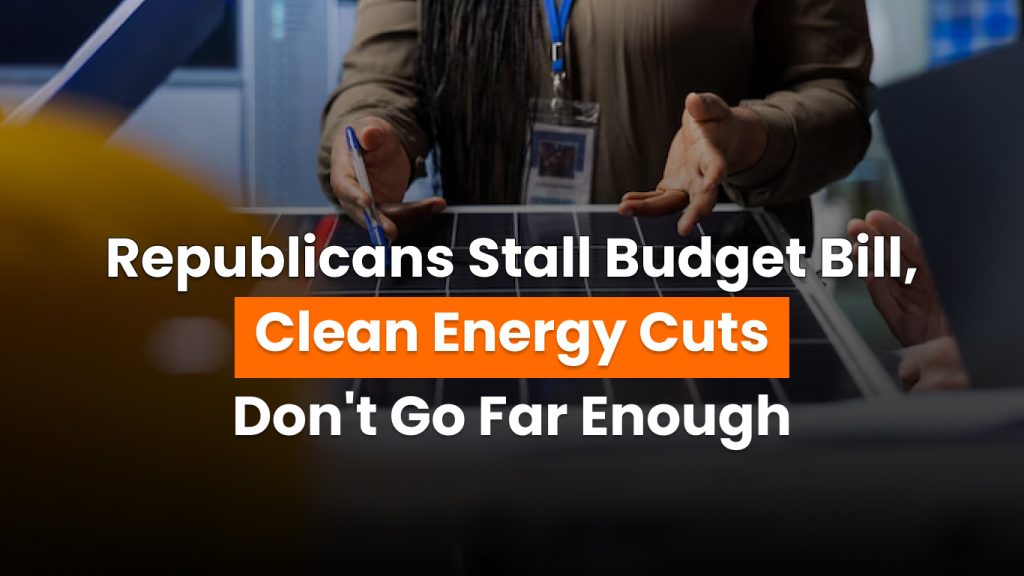A controversial draft budget bill aimed at slashing clean energy incentives was unexpectedly blocked in the House Budget Committee — not by Democrats alone, but with the help of five Republican members who said the proposed cuts did not go far enough.
As reported by The New York Times and Solar Power World, the bill was halted in committee before reaching the House floor, despite its inclusion of substantial reductions to solar subsidies and Medicaid. The conservative Republicans who voted against the bill made it clear that their opposition stems from the belief that the legislation falls short of fully reversing key clean energy initiatives, particularly those created under the Inflation Reduction Act.
The draft budget was crafted by the House Ways and Means Committee to align with several of President Donald Trump’s fiscal priorities, including making his 2017 tax cuts permanent and eliminating taxes on tips and overtime pay. To offset the resulting deficit, the bill proposed major spending cuts, including reductions to Medicaid funding and clean energy support. However, hardline conservatives demanded deeper and more immediate cuts to climate-related programs.
CLEAN ENERGY Incentives Face Pushback from Lawmakers
Among their key objections was the continuation of certain tax credits tied to renewable energy projects. These lawmakers are calling for a complete and immediate repeal of all clean energy incentives enacted through the Inflation Reduction Act, which was signed into law in 2022 under President Biden’s administration. That law includes a broad range of subsidies and tax incentives designed to boost domestic clean energy production and manufacturing.
One of the most impactful elements of the draft bill was the proposed elimination of the residential investment tax credit (ITC) starting this year. It also called for an accelerated phase-out of utility-scale solar and wind incentives, threatening to disrupt long-term project planning across the industry.
The Solar Energy Industries Association (SEIA), a leading national trade group representing solar companies, issued a strong rebuke of the proposed budget cuts. SEIA president and CEO Abigail Ross Hopper said in a public statement that the bill would “effectively dismantle the most successful industrial onshoring effort in U.S. history.”
“This legislation will cause hundreds of American factories to close, eliminate tens of thousands of jobs, force electric bills to skyrocket for everyone, weaken the reliability of our electric grid, and eliminate our capacity to compete with China. This disruption would devastate local, red-state economies, with more than 75% of at-risk factories and investments concentrated in these communities,” Hopper said.
Despite the setback, Republican leadership had hoped to pass the bill through the House and send it to the Senate before Memorial Day. With the vote delayed and the bill now stalled in committee, the House Budget Committee is scheduled to resume its markup process and vote again on Monday.
The outcome of that vote remains uncertain, as GOP leadership must now navigate tensions between moderate Republicans, fiscal hardliners, and Democrats who oppose any cuts to clean energy. The broader debate highlights the increasingly political nature of energy policy in the United States and the growing divide over how the nation should balance fiscal responsibility with long-term investment in clean technology.
Industry groups and clean energy advocates are watching closely, warning that major disruptions to solar incentives could reverse years of progress in job creation, infrastructure development, and domestic manufacturing. As the budget process continues, the clean energy sector remains in limbo, unsure whether the next version of the bill will bring compromise or even deeper cuts.




